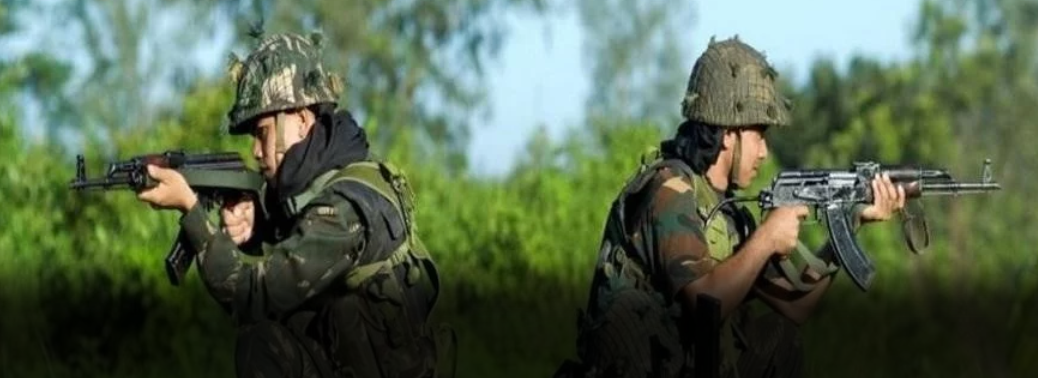AFSPA – Assam Rifles
22, Feb 2019

Prelims level : Defence
Mains level : GS: 3 Various Security forces and agencies and their mandate
- Assam Rifles personnel have been empowered by the central government to arrest anyone and search a place without a warrant in north-eastern states of Assam, Arunachal Pradesh, Manipur, Nagaland, and Mizoram.
About:
- The Centre granted paramilitary force Assam Rifles the power to arrest anyone and search a place without warrant in border districts in five north-eastern states.
- An officer of the rank corresponding to that of the lowest rank of members of the Assam Rifles has been given these powers under the Code of Criminal Procedure (CrPC) stated a notification issued by the Home Ministry.
- The Assam Rifles conducts counter-insurgency operations in the North East and guards the India-Myanmar border. At present, there are 46 battalions of Assam Rifles with a sanctioned strength of 63747 personnel. The paramilitary force is under the control of the Ministry of Home Affairs.
- The powers granted are akin to the provisions of the Armed Forces (Special Powers) Act, which is effective in several parts of the North East. The new powers are effective in the border areas of Assam, Arunachal Pradesh, Manipur, Nagaland and Mizoram.
- The notification from the Ministry of Home Affairs states that an “officer of the rank corresponding to that of the lowest rank of members of the Assam Rifles” will have these powers.
- The Assam Rifles earlier was making arrests only in areas where the Armed Forces (Special Powers) Act was in effect.
- They were finding it difficult to make seizures and arrest in Mizoram, which doesn’t have AFSPA. This is to basically correct that anomaly. As per law, they have to hand over the suspects to the local police within 24 hours.
- Section 41 of the CrPC states that any police officer may, without an order from a magistrate and without a warrant, arrest any person. Section 47 gives powers for search of place entered by person sought to be arrested.
- Section 48 says a police officer may, for the purpose of arresting without warrant any person whom he is authorised to arrest, pursue such person into any place in India. According to Section 49, the person arrested shall not be subjected to more restraint than is necessary to prevent his escape.
- The Armed Forces (Special Powers) Act, which is operational in some parts of the Northeast, also gives similar powers to the Army operating in the region.
AFSPA:
- The Armed Forces (Special Powers) Act, 1958 gives armed forces the power to maintain public order in “disturbed areas”
- They have the authority to prohibit a gathering of five or more persons in an area, can use force or even open fire after giving a due warning if they feel a person is in contravention of the law
- If reasonable suspicion exists, the army can also arrest a person without a warrant; enter or search a premise without a warrant; and ban the possession of firearms
- As per Section 3 of the AFSPA, it can be invoked in places “where the use of armed forces in aid of the civil power is necessary”
What is a “disturbed area” and who has the power to declare it?
- A disturbed area is one which is declared by notification under Section 3 of the AFSPA An area can be disturbed due to differences or disputes between members of different religious, racial, language or regional groups or castes or communities
- The Central Government or the Governor of the State or administrator of the Union Territory can declare the whole or part of the State or Union Territory as a disturbed area
Which States are under this Act?
- It is effective in the whole of Nagaland, Assam, Manipur (excluding seven assembly constituencies of Imphal) and parts of Arunachal Pradesh Jammu and Kashmir too has a similar Act






